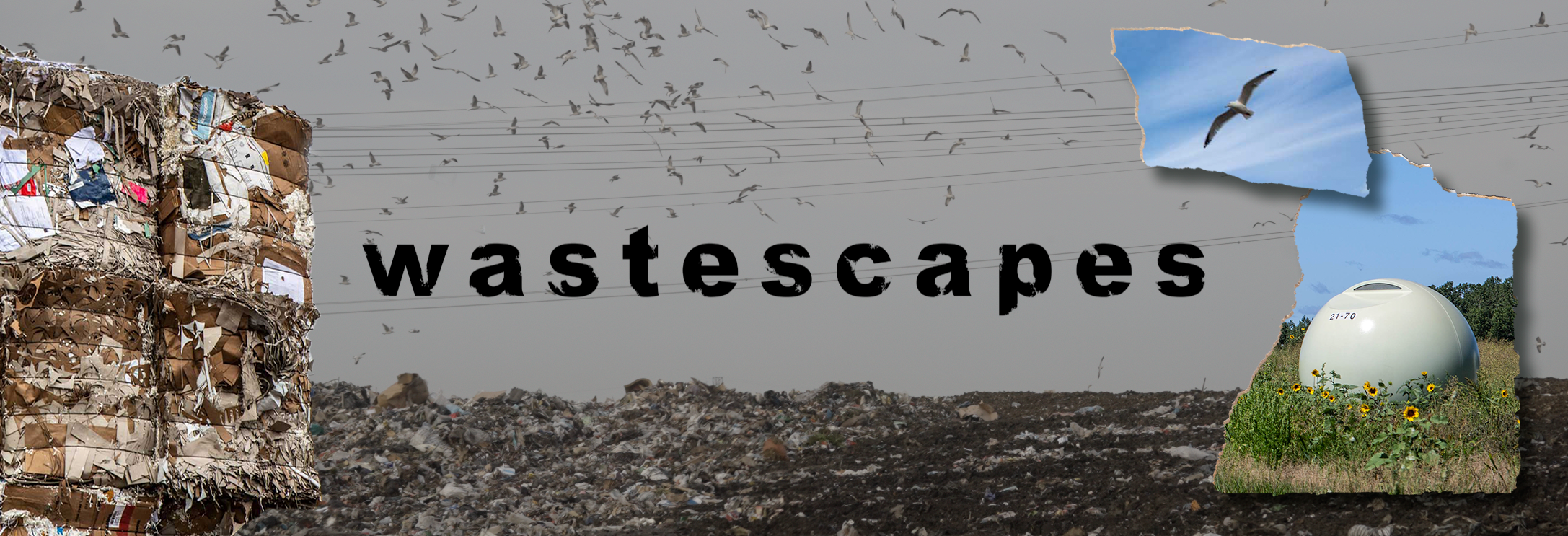
Explore Our Projects
WasteScapes is a collection of artistic, research, and educational projects that aim to engage creatively and critically with concepts and materials of waste in the city of Tioh:tiáke/ Montréal, Canada.
What is Waste?
Large cities like Montreal both produce and deal with a lot of waste– a fact that many simply don’t think about. This is by design: waste and the systems that deal with it are almost always concealed, allowing waste — as the famous saying goes — to be out of sight, and out of mind.
Despite this, millions of people and species live with or on our* discards.
And so foregrounding waste can give us new insights about how and why we* waste things, what things are discarded, and how those discards end up where they do.
Waste is a story about values. What we value, what we don’t, and how those often subjective values influence the shape and function of enormous and complex systems that impact our lives and the planet. But who is this we? As Drs. Max Liboiron and Josh Lepawsky warn:
*“There is no universal “we” when it comes to waste and discarding… Arguments that “we” are destroying the planet or “we” must all band together as one, miss the role of forces like colonialism and racism in how pollution, discarding, and extraction have continually benefitted some types and groups of people and burdened others. Put another way, universalism is one method that discards the differences that matter and maintains business as usual.” (Discard Studies, p. 101, 107).
So, our task (‘our’ meaning the many collaborators behind these projects) is not to wholly define waste but to understand that waste is simply the devalued parts of any system-- and that the processes, structures and beliefs that determine what gets devalued in a system are always contextual. Just as with “we”, what waste is cannot be universalized, only understood from partial standpoints.
WasteScapes seeks to approach waste in these multiple contexts and from the multiple perspectives of its contributors.
Territorial Acknowledgement
“Pollution is not a manifestation or side effect of colonialism but is rather an enactment of ongoing colonial relations to Land.” — Max Liboiron.
WasteScapes is based on unceded Indigenous land in the city known as Tioh:tiáke or what is also now called Montéal, Canada. We recognize the Kanien’kehá:ka Nation as the caretakers of these lands and waters.
The collaborators of these projects are committed to thinking critically about the intersections of waste and colonialism. Thinking of waste as a set of relations rather than just ‘a thing that happens’ brings us into the equation and raises ethical questions.
As you move through the city and its wastescapes, we invite you to join us in reflecting on the past and present relations to the land, water, and living entities that are enacted by the waste systems, and by ourselves. And, to reflect on how you might improve those relations.
To learn more about the territories upon which this work takes place, visit Concordia’s Territorial Acknowledgement.
WasteScapes was created by students and faculty at Concordia University in Tioh:tiáke/ Montréal with additional support from a Social Sciences & Humanities Research Council, Connection Grant
